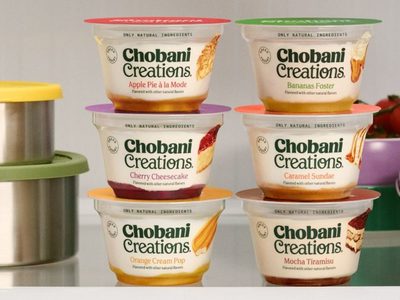
DENVER — Facing increasing competition in the market for almond milk, particularly from private label, WhiteWave Foods has been focused on broadening its stable of plant-based food and beverage products. The introduction of Silk branded cashew milk and extending the Silk brand into plant-based yogurt are just two examples of how management is growing the company.
 |
| Gregg Engles, chairman and c.e.o. of Whitewave |
“We believe that there are significant growth opportunities across the broader set of plant-based dairy alternatives,” said Gregg Engles, chairman and chief executive officer of the company on Sept. 9 during a presentation at the Barclays Global Consumer Staples Conference. “Using the current 7.5% U.S. share of the milk category as a guide, we’ve identified almost $3 billion of additional plant-based category potential across plant-based creamers, ice cream, yogurts and other future planned innovations.”
Mr. Engles highlighted the market for dairy-free frozen desserts as another example of an under-developed category.
“We’re building upon this category with exciting innovations like cashew-milk ice cream and coconut whipped toppings,” he said. “We’re also expanding in the U.S. with a bigger push behind our Silk yogurts. We’re now manufacturing these products ourselves in the U.S. and have been pleased with our initial results.”
After owning the Earthbound Farm business for approximately 18 months, the company is continuing to make strategic decisions to position the business for long-term growth, said Mr. Engles. Initiatives include a new management team, cost structure improvements, expansion into new categories and the exiting of some aspects of the business.
“We are focused on growing the Earthbound brand beyond salad and continue to see opportunities in areas such as frozen foods and fresh vegetables,” Mr. Engles said. “ … We’ve extended Earthbound into the frozen set and are working to build both distribution and velocities. Our largest customers were asking for more organic vegetables. We grow some of these products ourselves and are working to leverage our internal supply to grow this business to serve our customer and consumers’ desires for fresh organic produce.”

Extending the reach of Earthbound’s organic packaged salads is a priority for the company. New products include salad kits as well as new products that feature greens that are ready to be cooked.
Fruit is another issue for the company. Mr. Engles noted the supply chain for fresh fruit is a different model compared to salads and vegetables.
“It is a straight source-to-market model where we are not involved in the supply chain, which can lead to high variability in supply,” he said. “Additionally, we inherited some unfavorable supplier relationships in the fruit arena, which we chose to exit. We’ll continue to rationalize the fresh fruit portion of our business in order to put us in the best position to play in this category but you should expect it to become a smaller portion of Earthbound’s topline going forward.”
During the year WhiteWave Foods has acquired the Wallaby Yogurt Co., which has a manufacturing plant in American Canyon, Calif., and Vega, a Vancouver, B.C.-based manufacturer of plant-based nutritional products. With Wallaby, Mr. Engles said the new business will expand WhiteWave’s yogurt manufacturing capacity and allow it to extend further into the category.
“We’re excited to add Wallaby to our yogurt portfolio as it significantly broadens our scale and provides entry into emerging growth segments of the broader yogurt category,” he said. “These segments include Greek, Australian organic and drinkable yogurts, all of which have been growing at significantly higher rates than the overall category. And we see many ways to continue to grow this brand.

“ … We believe that Vega is now at an inflection point of its growth as it builds distribution in the United States and has a robust innovation pipeline and significant momentum. The strategic rationale of this acquisition is compelling as it strengthens our leadership position in plant-based foods and beverages and provides us an entry into the high growth nutritionals category, which is on trend and currently over $8.5 billion in the United States.”
The bulk of Vega’s product portfolio is in ready-to-drink beverages and bars.
“Vega has historically been sold by top-tier retailers in the natural and vitamin channels,” Mr. Engles said. “However, we are starting to grow our distribution in conventional channels in the United States where plant-based proteins have a low dollar share today. We believe this is a sizable opportunity.”



